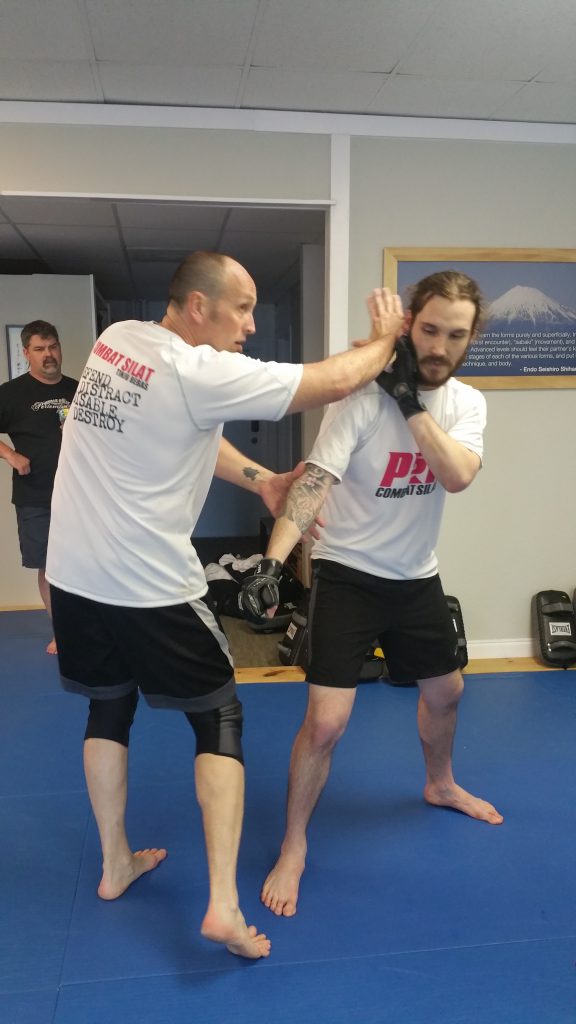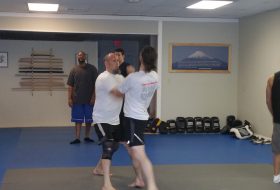Life hits us all from time to time. It’s easy to let that wave of struggle derail our focus and our attention away from the things in life that we truly enjoy and grow from. If you’re like me, you have to consciously decide to get yourself back on track. One way I do that is to identify areas where I need some performance improvements. To help myself and you I wanted to share some ideas on ways to accomplish these performance improvements even when life is bringing a wave.
First, understand the difference between Training vs. Practice. The Merriam-Webster Dictionary defines “Training” and “Practice” as:
Training –
a. (noun) the act, process, or method of one that trains
b. (noun) the skill, knowledge, or experience acquired by one that trains
Practice –
a. (verb) to perform or work at repeatedly so as to become proficient
b. (noun) the condition of being proficient through systematic exercise

Training is the act and way through Physical and/or Mental means of acquiring knowledge and experiences while you’re in class, while practice is taking the knowledge you gained in class and putting it into practice repetitively to become proficient. Understanding, but more so acting on the differences between Training and Practice are the keys to improving your skills and abilities in PSP.
Many go to a Martial Art schools expecting the Instructor to turn them into the Ultimate Martial Artist highly skilled in self-defense, they train the techniques do a couple of drills, leaving class with the feeling they can take on the world and are now indestructible, only to be extremely disappointed when they encounter a situation where they’re unable to defend themselves with what they trained in class. The student thinks their training has failed them, eventually quitting, looking for that next quick fix by hopping from school to school.Why do some seem to fail when it comes to Martial Arts, while other Shine?
I often hear Martial Artists in class say: “I have the knowledge, and I know how it should be, but I’m unable to consistently translate the knowledge to action.”
I believe to consistently translate the knowledge to action; you need to start by training good form, which in part also focuses on developing good muscle patterns (muscle memory). Bad Muscle patterns severely impair performance. After learning good form while training with a good instructor, you can then repeatedly practice what you learned to ingrain good muscle patterns. Being trained doesn’t mean you are proficient, you still need practice. Have you ever heard the saying that practice makes perfect?
Performance definitely improves from training, but performance exponentially improves with practice. Neither is more important than the other, and both must be done in order to improve overall performance.
Don’t strive to be just a trained in Pencak Silat Pertempuran, strive to be a trained and practiced in PSP.
Generalized, you already know what is needed to make performance gains for PSP, but due to family, friends, work, life, you haven’t been able to find time to get that much needed practice in, well for the PSP practitioner I’m hoping you’ll use this upcoming year to set a resolution to drastically improving your PSP performance, and to help, I’ve provided you with ideas to make practice part of your everyday life.
1. Incremental Practice – Take an idea, principle, or technique you learned in training and perform repetitions incrementally throughout the day. I find that increments of 15min work best, but smaller increments work as well, you should just add more of them to make up for the smaller increments of time. Take even one minute training increments if you need to, between phone calls, after bathroom breaks, during lunch, just before sleeping or just after waking, the idea here is to not be shy where you practice, just take any moment you can find throughout the day to practice, by the end of the day it will add up.
2. Early Morning Practice – This requires determination, possibly some missed sleep, but if you start going to bed early by 10 min and add an additional 10 min for 6 consecutive nights, you should be able to wake an hour early by the 7th day to get a minimum of a 30 min practice session in.
3. Skip that TV show or Video Game – Take advantage of new technology; start recording (DVRing) TV shows or watching them on-line at a later time, and spend that time practicing. By recording them earlier, you can even fast forward through commercials saving yourself even more time.
4. Include the family and loved ones – If you’re dating, married, or have children, include them in your practice time, ask them to stand in as your practice partner. Take them to a park, or backyard and practice as they lounge or play. Not only will you be getting much needed practice time in but you’ll be bonding.
5. Pack your Lunch – If you’re a Student or Work Professional, pack you lunch and spend the time before you eat to adding some practice time in.
These are just 5 way to improving your performance; the point is if you want to make serious improvements in PSP or for that matter any Martial Arts, you need to Train in Class with your instructors, and then Practice what you learned to become proficient by avoiding excuses and by making the time. Before you know it you’ll be advancing by leaps and bound and you’ll become one of the few students that shine.
By Pelatih Andrew Ewing
Florida Pencak Silat Pertempuran


